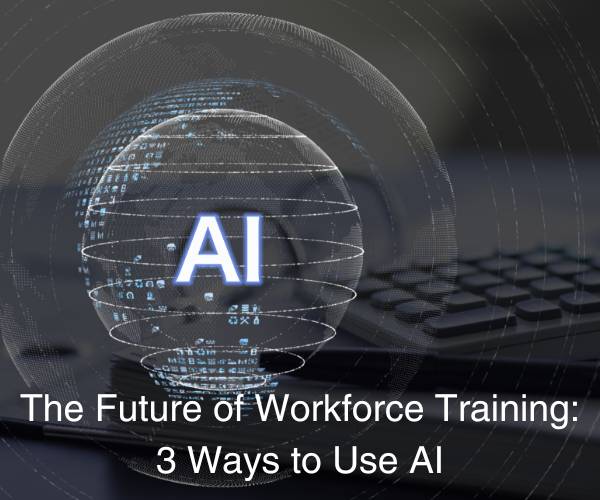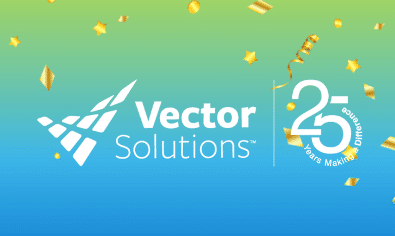December 17, 2024 6 min read

Top 7 Skills to Take Your Career to the Next Level in 2025
Industry:
Solution:

More and more businesses are continuing to switch to skills-based hiring. In large part, this is because it is often a better predictor of effective job performance. In fact, according to a recent study in the American Psychological Association’s Psychological Bulletin, “Hiring for skills is five times more predictive of job performance than hiring for education and more than two times more predictive than hiring for work experience.” According to a 2024 Gallup and Workhuman study, only 47% of employees say they feel fully equipped with the skills needed to perform exceptionally in their roles.
The Society for Human Resource Management (SHRM) reports that employers spend an average of $4,129 and require about 42 days to recruit and hire for a single open position. This helps to illustrate the increased focus companies are putting on the significant and measurable results that come with investing in training their current employees.
Related: A Forecast of 2025 Learning and Training Trends
How can you leverage these trends to your benefit? Here are our top predictions for skills to make you indispensable in 2025 and to help propel your career to new heights.
In-Demand Skills to Stay Ahead in 2025
Business Savvy
As businesses navigate complex markets, having a strong understanding of financial principles and a growth-oriented mindset have never been more valuable. Employers increasingly seek professionals who can connect their roles to a larger business strategy that can contribute to profitability. In fact, a survey by Deloitte found that companies prioritizing entrepreneurial skill-building saw a 20% increase in revenue growth over five years. Upskilling your business acumen will not only make you more indispensable, but it will also position you as a leader who is able to drive both team and company success.
Key skills in this area include:
- Strategic Thinking
- Financial Literacy
- Sales / Negotiation Skills
- Entrepreneurial Thinking
Data Analysis
Analytical thinking and innovation are valued more now than ever before. By definition, data science is the refining of data to make it useful. Valuable in every job sector, not just tech, the need for data scientists shows no signs of slowing down in 2025, with some of the top data science skills hiring managers will be looking for, including:
- Ability to Use Automated Analytics Tools
- Cloud Computing
- Data Visualization
- Expertise in AI/ML
Data visualization, or the ability to present data visually in graphs or images, is also incredibly valuable. In fact, learners who are provided with illustrations perform 323% better than those who follow text-only directions. Even simple graphs improve perceptions of accuracy and truthfulness to 97%. The augmented and virtual reality (VR) tech sector alone is expected to reach USD 88.4 billion by 2026! Particularly with increasingly standard hybrid working environments, the need for accessible, impactful data leads to an increased demand for data visualization skills. The top characteristics of data visualization skills are:
- Visual appeal
- Scaleable
- Gives the user the right information
- Accessible
- Allows for rapid development and deployment
AI and Machine Learning
The meteoric rise of artificial intelligence (AI) and machine learning has already transformed the global workforce. AI-powered tools are being developed for every industry, and the demand for these skills is expected to continue growing rapidly. In fact, the World Economic Forum released a report that states that the demand for AI and machine learning experts will exceed the supply by 2025, highlighting the need to stay ahead in this field.
In 2025, it’s critical to position yourself as indispensable by mastering AI tools. When implemented thoughtfully, AI can help organizations be more efficient, enabling data-driven decisions, accelerating problem-solving, and advancing organizational goals alongside individual career growth.
For instance, AI-driven personal productivity tools, such as automated scheduling, email sorting, and content generation are already helping employees work faster and more effectively. By mastering these tools, you can streamline your tasks, better prioritize, and maximize your output, making you an even more valuable asset to your team, ensuring you stay competitive in the modern workforce.
Related: 5 Tips to Help You Leverage the Power of AI in Course Authoring
Cybersecurity
The powerful growth of AI and machine learning has drastically increased the need for heightened vigilance when it comes to cybersecurity. As digital transformation accelerates across industries, cyberattacks have become more sophisticated, with hackers using AI-driven tools to bypass traditional defenses and exploit human weaknesses. This shift, combined with an increase in data breaches and AI-generated code, means that businesses face a growing risk of exposure to cyber threats.
In 2025, proactive cybersecurity measures and training will be critical for organizations to safeguard both their data and that of their customers – particularly when it comes to bad actors who exploit human weaknesses. This includes phishing emails, social engineering, and other forms of manipulation that exploit vulnerabilities in how people interact with technology. A report from Cybersecurity Ventures predicts that cybercrime will cost the world $10.5 trillion annually by 2025, underscoring the importance of developing comprehensive strategies for prevention and response.
Courses like Vector’s online training catalog, featuring topics with up-to-date lessons for browser, email, and password security, can greatly improve cybersecurity awareness amongst employees and mitigate risks to your agency’s corporate and personal information. This helps to bridge knowledge gaps by offering courses focused on real-time threats and updated security practices, ensuring that employees are prepared to handle evolving cyber risks.
Active Learning Strategies & Applications
As experts in workforce training and development, we aren’t surprised to see this one here! Many companies have not evolved their learning and training programs over time. In remote or hybrid workforce environments, employers must provide employees with continuous learning opportunities and the ability to practice those skills. We’ll see a continued rise in self-paced learning, microlearning, social learning, and gamification as well as peer-to-peer learning.
Incorporating VR, gamification, video, and mobile learning means that there are hard skills that will be needed and valued in this category in 2025 as they aid in great knowledge retention and adoption in the corporate environment.
Hybrid Workforce Management
As more businesses adopt hybrid work models, managing teams that are both remote and in the office is becoming a vital skill. According to McKinsey, 80% of hybrid workers value autonomy in choosing where they work, highlighting the importance of flexibility in their jobs. Key traits for successful hybrid workforce management include:
- Digital Collaboration Tools Mastery: Hybrid teams rely on tools like Microsoft Teams, Slack, and Zoom for seamless communication.
- Focus on Performance Over Time Spent in Office: Leaders should focus on tracking outcomes over hours.
- Building an Inclusive Culture: Fostering a sense of belonging is critical to maintaining team morale and supporting employee well-being.
- Adaptable Leadership Styles: Hybrid leaders must be skilled at balancing autonomy with support, and be prepared to adapt their approach to meet the needs of their employees.
EI and Other Soft Skills
Last, but not least, there are some things that machines just can’t do as well as humans. With up to 30% of our working time being automated by 2030, truly human services will be more valuable and in demand than ever. While they may sound basic, these soft skills can be improved with focused attention and can help candidates stand out to hiring managers in 2025:
- Communication
- Empathy
- Critical thinking
- Emotional intelligence
- Complex problem-solving
- Negotiating
- Reasoning
- Time management
- Resilience
- Leadership and social influence
The Future Is Bright for Those Who Upskill
The time to invest in your professional development is now. The half-life of a skill is estimated at just five years, and with massive change and growth happening, not just in tech, but across all industries, there is no time like the present to ensure you’re competitive in today’s workplace and the workplace of tomorrow.
Learn more about how we help critical industries deliver dynamic, results-driven learning and training opportunities to their workforce. Contact us online today to see how Vector Solutions can help your organization.








